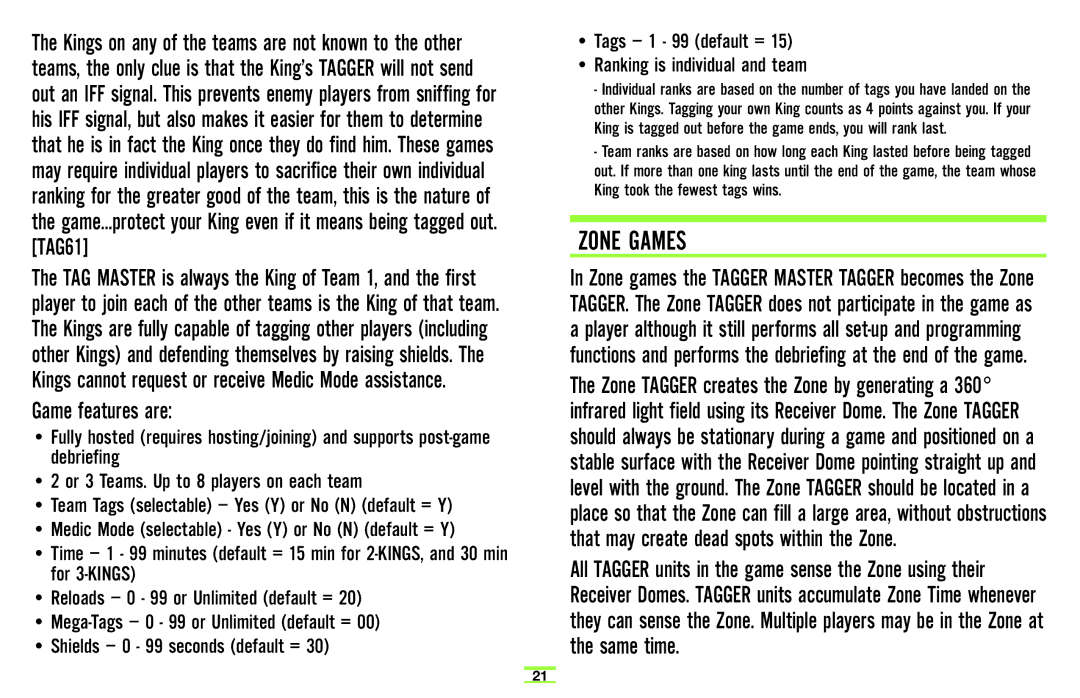
The Kings on any of the teams are not known to the other teams, the only clue is that the King’s TAGGER will not send out an IFF signal. This prevents enemy players from sniffing for his IFF signal, but also makes it easier for them to determine that he is in fact the King once they do find him. These games may require individual players to sacrifice their own individual ranking for the greater good of the team, this is the nature of the game…protect your King even if it means being tagged out. [TAG61]
The TAG MASTER is always the King of Team 1, and the first player to join each of the other teams is the King of that team. The Kings are fully capable of tagging other players (including other Kings) and defending themselves by raising shields. The Kings cannot request or receive Medic Mode assistance.
Game features are:
•Fully hosted (requires hosting/joining) and supports
•2 or 3 Teams. Up to 8 players on each team
•Team Tags (selectable) – Yes (Y) or No (N) (default = Y)
•Medic Mode (selectable) - Yes (Y) or No (N) (default = Y)
•Time – 1 - 99 minutes (default = 15 min for
•Reloads – 0 - 99 or Unlimited (default = 20)
•
•Shields – 0 - 99 seconds (default = 30)
•Tags – 1 - 99 (default = 15)
•Ranking is individual and team
-Individual ranks are based on the number of tags you have landed on the other Kings. Tagging your own King counts as 4 points against you. If your King is tagged out before the game ends, you will rank last.
-Team ranks are based on how long each King lasted before being tagged out. If more than one king lasts until the end of the game, the team whose King took the fewest tags wins.
ZONE GAMES
In Zone games the TAGGER MASTER TAGGER becomes the Zone TAGGER. The Zone TAGGER does not participate in the game as a player although it still performs all
The Zone TAGGER creates the Zone by generating a 360° infrared light field using its Receiver Dome. The Zone TAGGER should always be stationary during a game and positioned on a stable surface with the Receiver Dome pointing straight up and level with the ground. The Zone TAGGER should be located in a place so that the Zone can fill a large area, without obstructions that may create dead spots within the Zone.
All TAGGER units in the game sense the Zone using their Receiver Domes. TAGGER units accumulate Zone Time whenever they can sense the Zone. Multiple players may be in the Zone at the same time.
21
